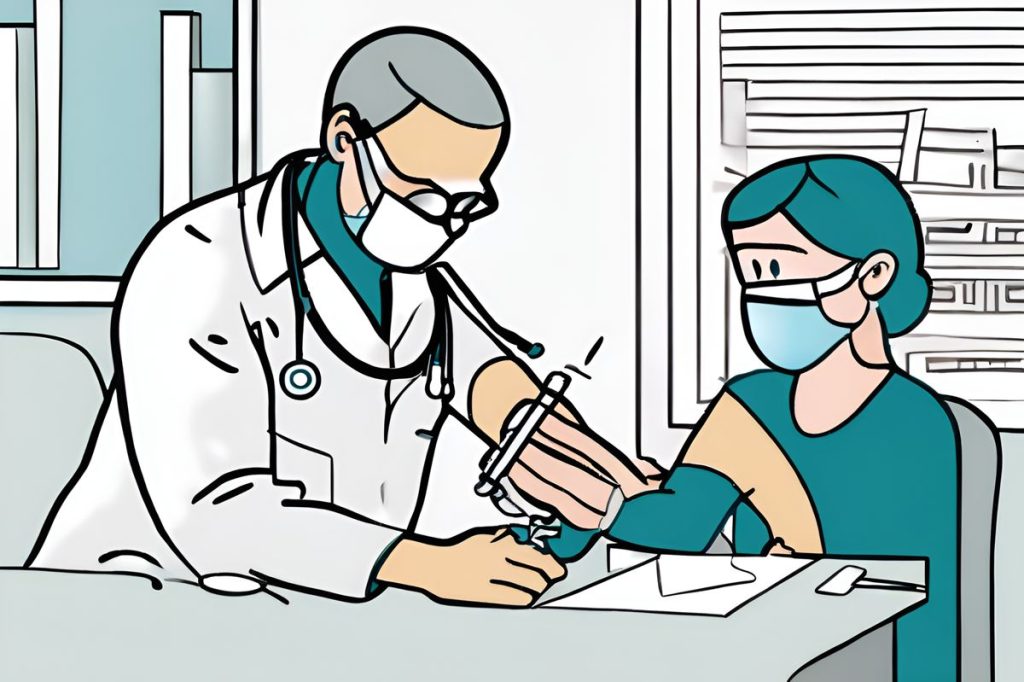HPV vaccination is crucial in preventing diseases and cancers caused by the Human Papillomavirus (HPV), recommended for children aged 11-13 to intercept the virus early and reduce the risk of cervical and other HPV-related cancers. Health Minister Michael Damianos advocates for increased awareness and vaccination to combat HPV-related diseases, offering free vaccinations to children and emphasizing the importance of early prevention and detection.
Why is HPV vaccination important?
HPV vaccination is crucial in preventing diseases and cancers caused by the Human Papillomavirus (HPV). It’s recommended for children aged 11-13 to intercept the virus early, reducing the risk of cervical and other HPV-related cancers. The HPV vaccine is a key component in health strategies, aiming to make such cancers rare and save lives through early prevention and detection.
The Importance of Vaccination
Health Minister Michael Damianos recently emphasized the significance of recognizing International Human Papillomavirus (HPV) Awareness Day. His advocacy for increased awareness comes with a strong recommendation for the use of vaccinations and screenings to prevent diseases and cancers associated with HPV. The minister praised the efforts of the National Vaccination Advisory Committee and local support groups, drawing attention to the ministry’s dedication to this cause.
In a move to bolster prevention strategies, free HPV vaccinations are being offered to children aged 11-13. This initiative is part of a broader plan to employ modern technology and capabilities in the battle against HPV-related diseases. These advances in medical science hold the promise of not only extending but saving many lives.
Advances in Screening and Prevention
In his remarks, Damianos underscored the importance of proactive measures, including the development and implementation of new screening tests for early cancer detection. The minister stressed that the results of these initiatives would become evident in the coming decades, as today’s vaccinated youths reach their thirties and beyond.
HPV is one of the most common sexually transmitted infections, primarily spread through direct contact with an infected person. It is known to cause various cancers, particularly cervical cancer, which is among the most preventable and treatable forms when detected early. The health ministry has made it clear that leveraging technology to prevent and treat pre-cancerous lesions or cancer is now more feasible than ever.
Cyprus’s Commitment to Health
Speaking on the topic, the health ministry’s general director, Christina Yiannaki, provided crucial insights about HPV and its impact. Notably, she highlighted that HPV is the second-most-common cause of cancer in women, trailing only breast cancer. The infection predominantly affects individuals between the ages of 14 and 44, and despite thousands of cases being reported annually, there remains a high mortality rate among those affected.
The national vaccination program in Cyprus has included the HPV vaccine since 2016, marking a significant step in public health efforts. The ministry continues to push for comprehensive prevention strategies in line with Europe’s Beating Cancer Plan, aiming for early treatment and management of cancer cases.
A National Health Priority
Damianos’s call to action extends to all stakeholders involved in healthcare and public well-being. The unified goal is clear: to enhance the use of available resources and knowledge to curb the spread and impact of HPV. By doing so, the ministry envisions a future where HPV-related cancers become a rarity rather than a common threat.
The minister’s statements are a clarion call for increased public education on the risks of HPV and the benefits of vaccination. With persistent efforts and widespread participation, the fight against HPV is one that can be won, securing healthier futures for the upcoming generations.
Why is HPV vaccination important?
HPV vaccination is crucial in preventing diseases and cancers caused by the Human Papillomavirus (HPV). It’s recommended for children aged 11-13 to intercept the virus early, reducing the risk of cervical and other HPV-related cancers. The HPV vaccine is a key component in health strategies, aiming to make such cancers rare and save lives through early prevention and detection.
What is Health Minister Michael Damianos advocating for?
Health Minister Michael Damianos is advocating for increased awareness and vaccination to combat HPV-related diseases. He emphasizes the importance of early prevention and detection by offering free vaccinations to children and promoting the use of modern technology and capabilities in the battle against HPV-related diseases.
What are some advances in screening and prevention mentioned in the information?
Health Minister Damianos underscored the importance of proactive measures, including the development and implementation of new screening tests for early cancer detection. The ministry is leveraging technology to prevent and treat pre-cancerous lesions or cancer, making prevention and treatment more feasible than ever before.
What is Cyprus’s commitment to combating HPV?
Cyprus has included the HPV vaccine in its national vaccination program since 2016, signaling a significant step in public health efforts. The health ministry continues to push for comprehensive prevention strategies in line with Europe’s Beating Cancer Plan, aiming for early treatment and management of cancer cases to reduce the impact of HPV-related diseases.

